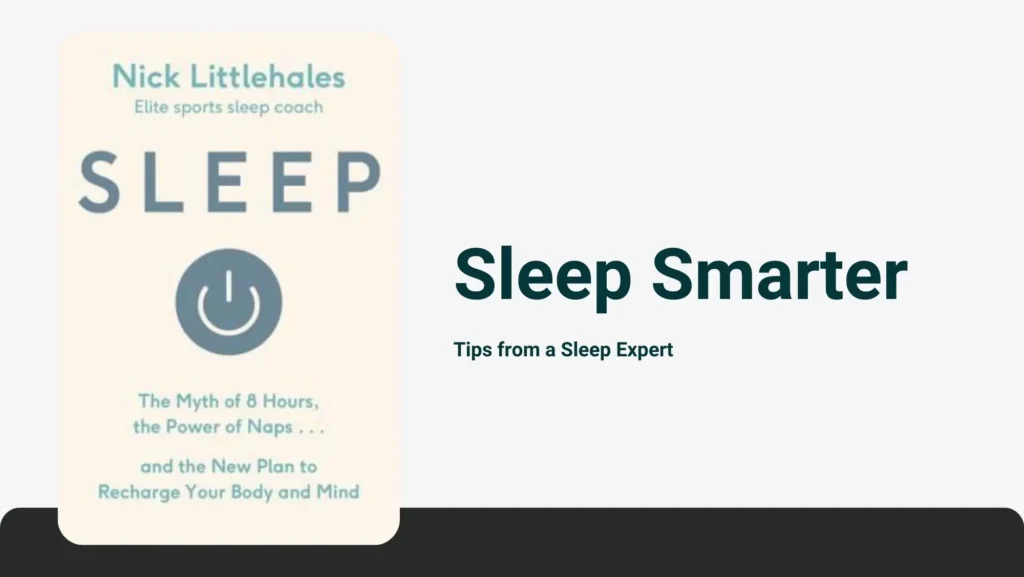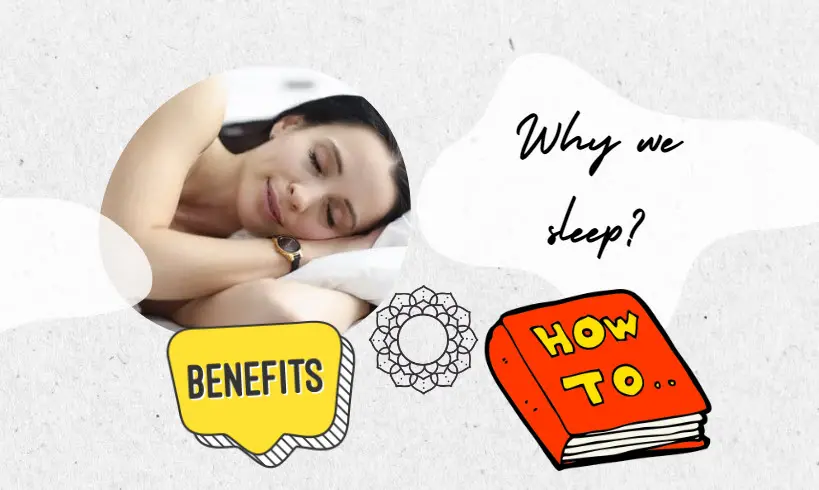Insights from Elite Sleep Coach Nick Littlehales
Ever feel like you’re doing everything right, yet still can’t get a full night’s sleep? You’re not alone.
One Reddit user shared, “I can never get a full night’s sleep. I always end up sleeping 6 hours and wake up really tired. I try to go back to sleep but just lie there, feeling groggy and unable to function normally.” This sentiment resonates with so many of us who struggle to achieve that.
We are always on the go, kids, work, morning gym and ofcourse your favorite Netflix release, sleep often gets pushed to the back burner. The book Sleep smarter, Nick shares how making a few small changes, we could dramatically improve not just your sleep, but your overall health and performance? I have tried a few and they are simple and easy to follow.
Nick Littlehales, is a world renowned an elite sleep coach who’s been in the game long enough to know a thing or two about getting that perfect night’s sleep. His book, Sleep Smarter: Lessons from an Elite Sleep Coach, is a treasure trove of science-backed advice on optimizing your sleep and recovery. Let’s dive into some of the golden nuggets that I have distilled and incorporated in to my life
For more detailed information, you can check out a related study on sleep deprivation and car accidents.
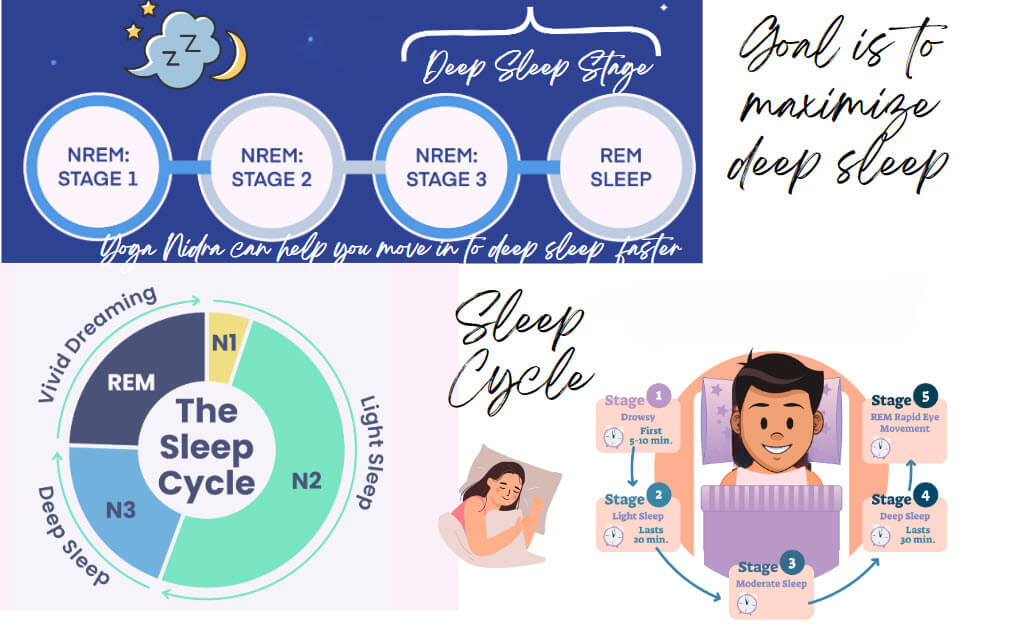
Harness Your Body’s Natural Rhythms
Our bodies are like finely-tuned machines with their own internal clocks—circadian rhythms—that regulate everything from our body temperature to hormone levels. Ignoring these rhythms is like ignoring your car’s maintenance schedule—it’s bound to lead to a breakdown eventually.
Okay I have to throw this in. I am a Yoga Nidra coach, but what has been science backed is breathing and visualization techniques to calm the mind and put you in a state of rest. Discover Yoga Nidra: A Surprising Solution for Sleep Disorders
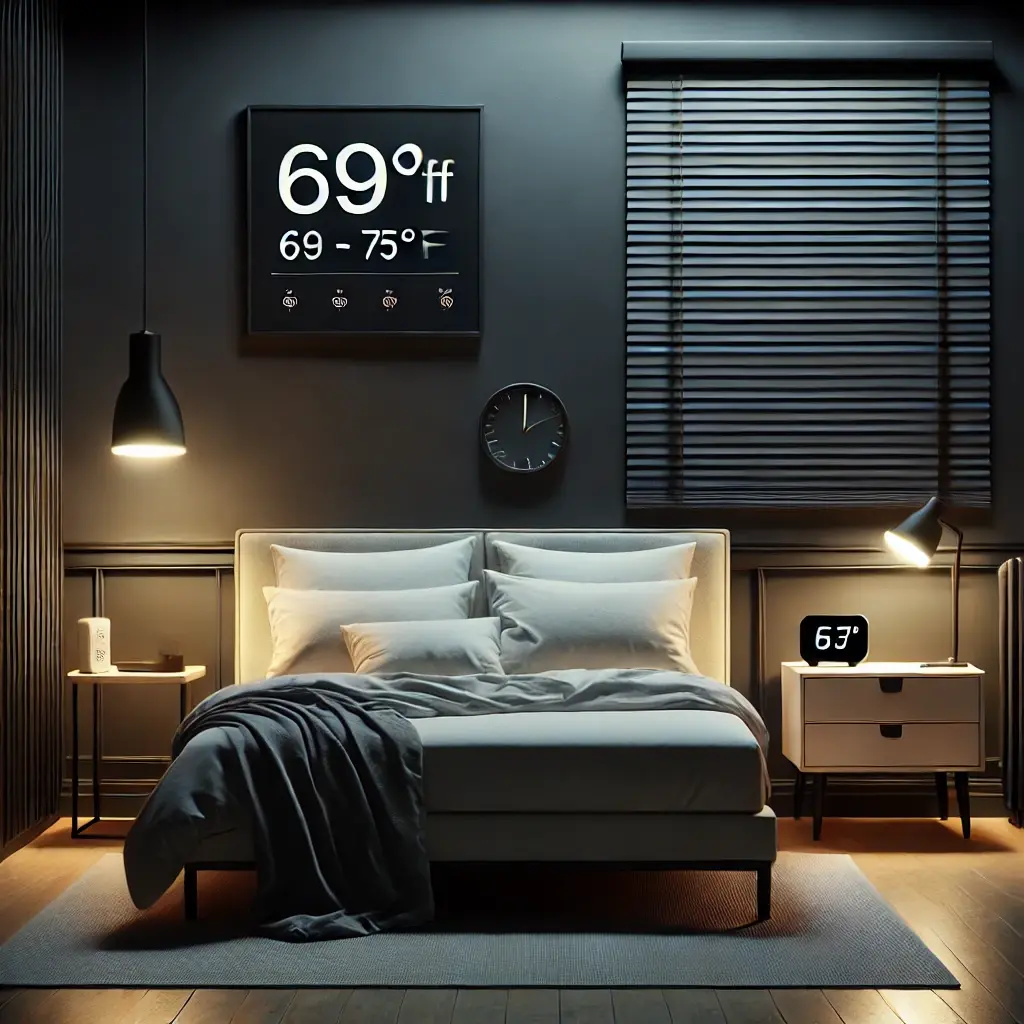
Keep your room set between 69 F and 75 F ( 21 -24C) for ideal comfort and sleep optimization
1️⃣ Mind Can’t Relax? Breathing practices are your best friend. Relax your face, drop your shoulders, exhale, and relax your legs
🌡️ Room Temperature: Keep your room set between 69°F and 75°F (21-24°C) for optimal comfort.
Listen to your body! Go to bed when you naturally start feeling sleepy, which for most of us is a few hours before midnight.
- Set a consistent wake-up time that aligns with sunrise. Instead of going to your phone, expose yourself to sunligh in the frst 20 minutes of waking up, it will energize you and is guaranteed to stop your morning groginess.
We also run a free community where we share free Yoga Nidra, sleep tips and supplements.
Sleep in Cycles, Not Hours
Forget everything you’ve heard about needing a solid eight hours of sleep. According to Little Hales, it’s not about the hours, but the cycles. We sleep in 90-minute cycles, and the trick is to complete a certain number of these cycles rather than fixating on the total number of hours.
Also check this other blog article about How to Improve Deep Sleep: Expert Tips and Personal Insights
💊 Sleep Supplements: Consider taking Magnesium Threonate, Apigenin, Theanine, Glycine, GABA, and Myo-inositol. These are great supplements to improve sleep quality. Please research these a bit. You can learn more about this in our blog article on Magnesium and how it helps improve sleep quality.
- Aim for around five cycles (that’s about 7.5 hours) of sleep. But don’t stress if you’re a bit short—completing cycles is more important.
- Keep your wake-up time consistent, even if your bedtime fluctuates. This helps your body maintain those all-important cycles.
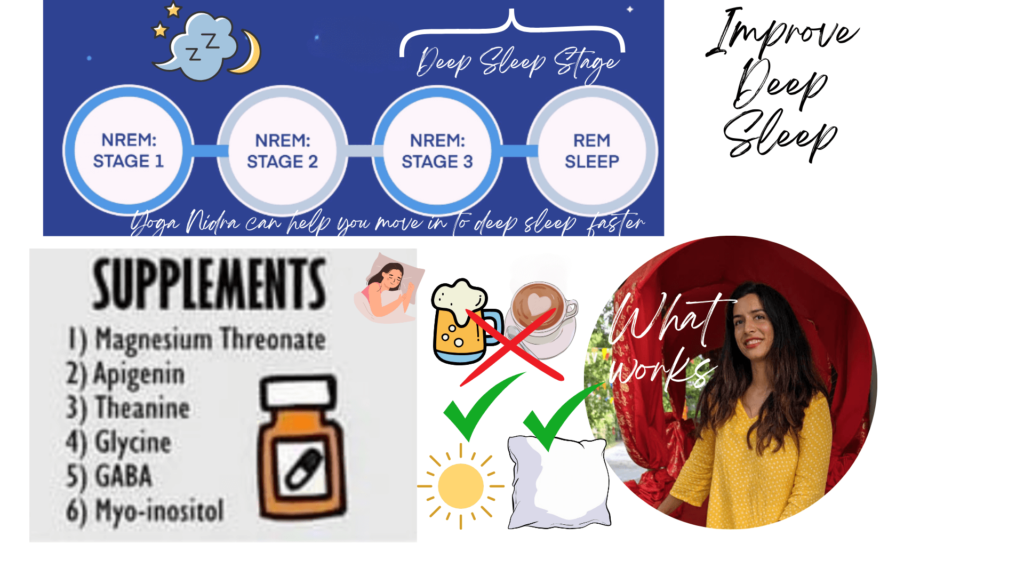
Recovery is 24/7
Surprise! Sleep isn’t the only time your body recovers. Littlehales emphasizes that recovery should be something we think about all day, not just when our heads hit the pillow.
Snoring Solutions is something also covered.🛌 Example, sleep on your side or prop your head up a few inches for better breathing. Try to clear out your sinuses with saline before bed. Need a tutorial? Just DM me, happy to do a free session. Also lots of YouTube videos are available on this topic.
- Develop consistent pre-sleep and post-sleep routines. This helps signal to your body when it’s time to wind down or get going.
- Incorporate “mind naps” or short breaks throughout your day to recharge. These can be as simple as a few minutes of deep breathing or a quick walk.
- If you miss out on sleep at night, don’t sweat it. Use short naps or rest periods during the day to make up for lost time. Have 10 minutes try Yoga Nidra for 10 minutes has the restorative power of 4 hours of sleep. IMP NOTE: Yoga Nidra is not a substitute for sleep.
Create an Optimal Sleep Environment
Think of your bedroom as your sleep sanctuary. The more comfortable and conducive to rest it is, the better your sleep quality will be.
🌡️ Room Temperature: Keep your room set between 69°F and 75°F (21-24°C) for optimal comfort.
- Keep your bedroom dark and cool—blackout shades and a lower thermostat are your friends.
- Banish electronics and clutter. A clean, tech-free space is key to calming your mind before bed. Digital sunset at least 1 hour before sleep.
- Invest in a good mattress and bedding. After all, you spend a third of your life in bed, so why not make it as comfortable as possible? After reading the book, I have started looking at better memory foam options for bedding.
The Bottom Line and my learnings from Nick’s Sleep Smarter book
Improving your sleep doesn’t require a complete life overhaul. By making small, deliberate changes—like aligning with your body’s natural rhythms, focusing on sleep cycles, and creating a better sleep environment—you can set yourself up for better health, improved performance, and an overall better quality of life.
Also try one of your Yoga Nidra

